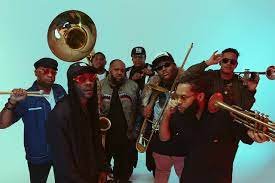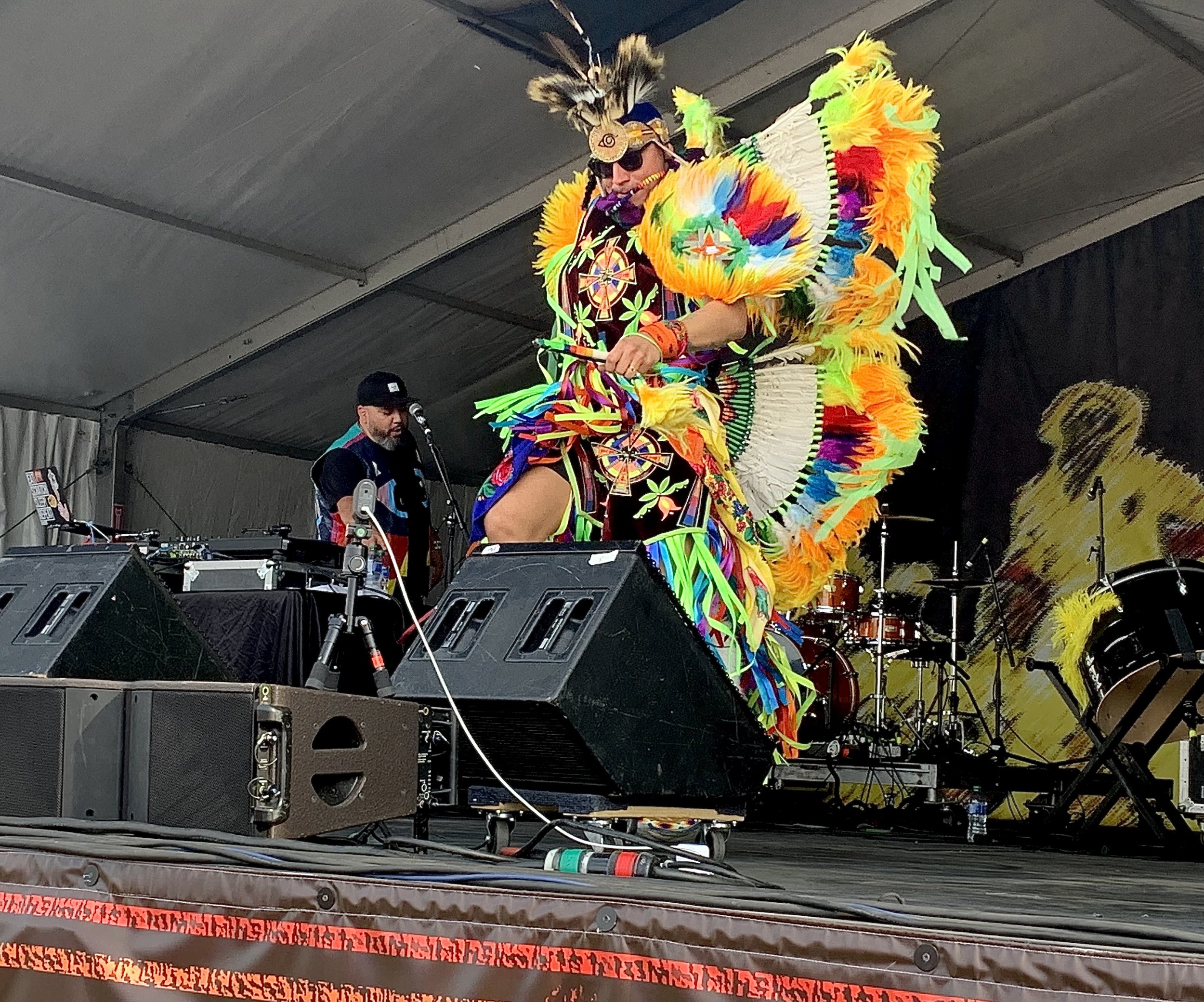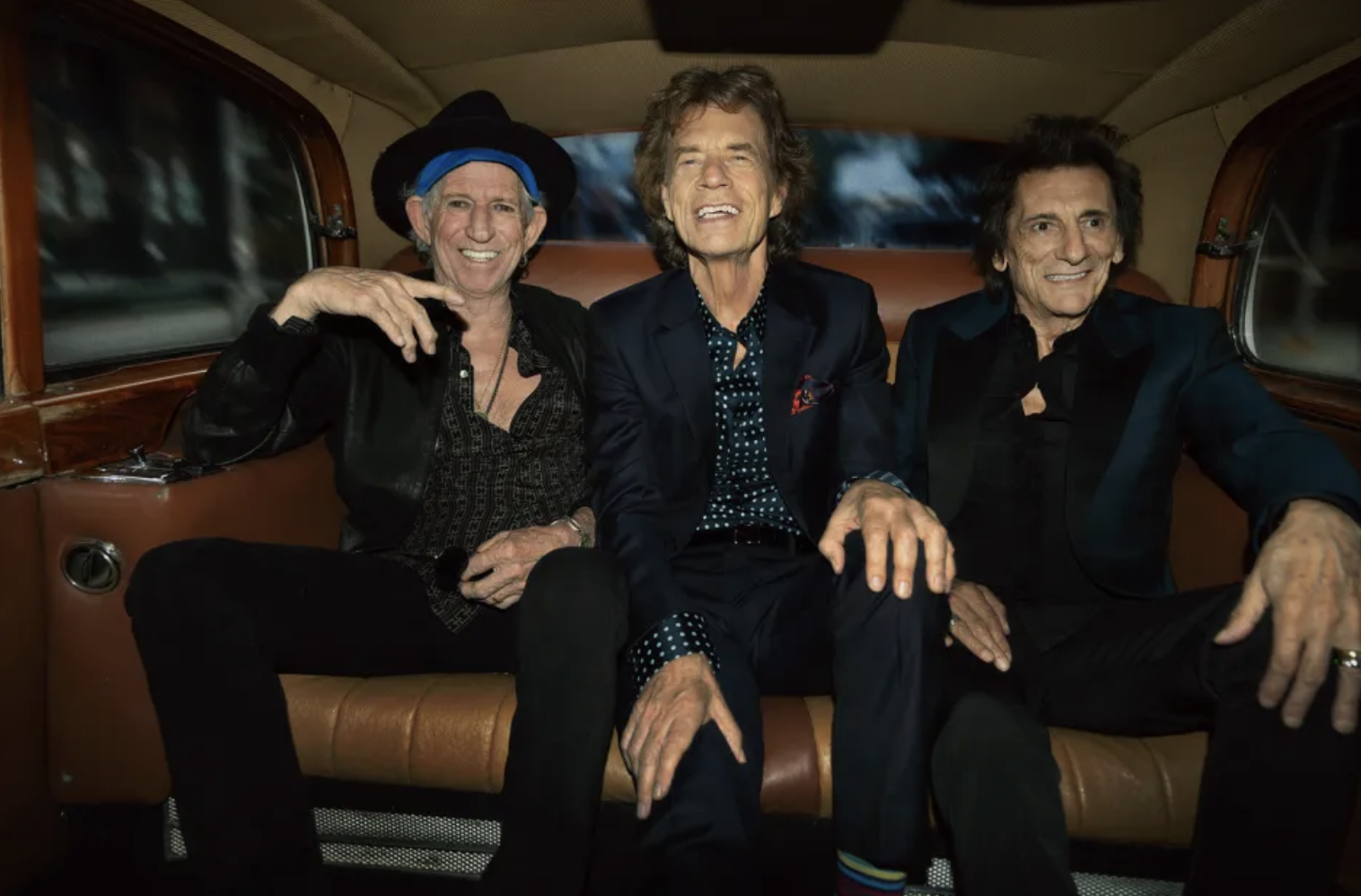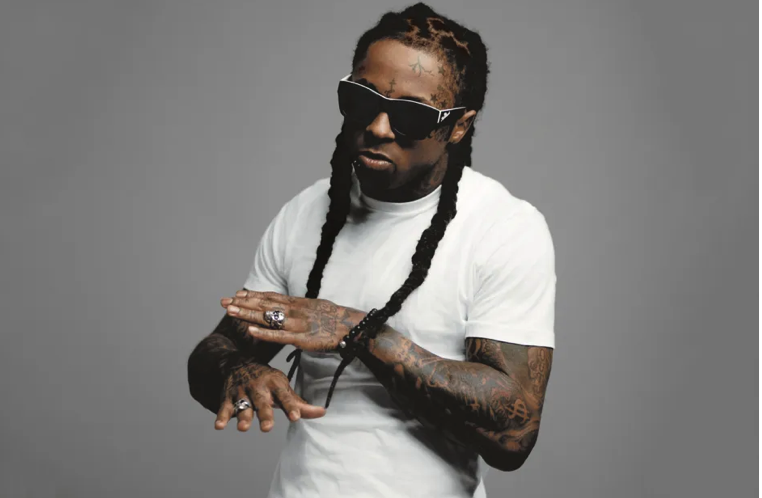Soul Rebels Give Rap a Fresh Sound Live at Jazz Fest

The Soul Rebels
When the New Orleans brass band backs up Wu-Tang Clan Friday, something will be lost, but a lot will be gained.
When The Soul Rebels perform behind Wu-Tang Clan Friday at 5:40 p.m. to close the Congo Square Stage at Jazz Fest, it will continue a project that has become a healthy side hustle for the band. Recently, they backed up Rakim at Tipitina’s for a handful of his greatest hits with Eric B including “I Ain’t No Joke.” They have also played with a who’s who of hip-hop history including Nas, Curren$y, Joey Bada$$, Talib Kweli, GZA, Macklemore & Ryan Lewis, Mobb Deep, and Raekwon. The Soul Rebels will also perform with Black Star—Talib Kweli and Yasiin Bey—Friday night at the Mahalia Jackson Theater.
They come by it honestly. The Soul Rebels made their connection to hip-hop clear when DJ Maxmillion added scratching to tracks on 2005’s Rebelution, and according to drummer Lumar LeBlanc, the connection between rap and New Orleans brass band music was obvious. He remembers being blown away the first time he heard “The Adventures of Grandmaster Flash and the Wheels of Steel” and recognizing that rap and brass bands were both street music. “Music that comes from the community, comes from the streets, brought to the stage,” he said in 2016. “Olympia [Brass Band] was hip. Olympia was different from the Eureka, even from the way they looked with those colored pants and King Richard up front. They probably looked like a hip-hop act to the older brass bands.”
The Soul Rebels also solve a technical question: How best to add music to a live hip-hop show? For a long time, DJs often lacked presence and punch in a live mix in bigger venues, so many rappers took bands on tour with them. That added power but lost cultural resonance. The DJ preceded the rapper in hip-hop history, and the philosophy of making new music from the creative de/re/construction of old music gave rap a baked-in subversive, outlaw quality that’s lost when the DJ is replaced by a band. De La Soul’s 3 Feet High and Rising was remixed in a couple of ways while the original recordings were stuck in limbo, and while each is good in its way, the samples remain integral to the album’s legendary status.
Putting a band behind a rapper also treats the sound of the song as a negotiable detail when that’s rarely the case. “Who’s That Lady” without Ernie Isley’s fuzzed and compressed lead guitar simply isn’t “Who’s That Lady,” and bands often tour with multiple guitars with different tunings and set-ups to help them recreate the sounds that fans know from the records. A band behind an emcee, even The Soul Rebels, loses something in the process.
Fortunately, the trade off brings strong positives too where The Soul Rebels are concerned. Sometimes a meaningful sonic texture is noticeably missing, but The Soul Rebels behind rappers highlight the brass-driven R&B and jazz sources that fueled a lot of first and second generation hip-hop. They present a new take on the song that often helps listeners hear something fresh in the orginal. They also give the emcees a chance to show their musicianship, something taken for granted when they’re playing with a DJ over tracks that they have rapped over for a few decades now. The live, fresh grooves of The Soul Rebels gave a gifted emcee like Rakim cool, rhythmically sly places to slide lines for greater effect.
For our purposes, that’s one of the reasons to get behind The Soul Rebels’ project. At a simpler level, they help rappers including Wu-Tang Clan get to Jazz Fest—artists who likely would not be booked on their own merits. They also give many of the rappers an opportunity to have a fresh musical experience and perform not as a memory but an active, live artist making music in the moment. Hip-hop is 50 years old this year, and many of its greats don’t play much anymore, or they’re consigned to old school package tours. In conjunction with The Soul Rebels, they get to make music with stakes again, and so far that has usually paid off with the emcees rising to the occasion.
Creator of My Spilt Milk and its spin-off Christmas music website and podcast, TwelveSongsOfChristmas.com.






